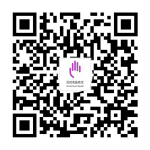Michel M. Russell, Sr. recently joined Bristol Myers Squibb (BMS) as the executive director for Intercompany Operations within Global Delivery Solutions (GDS), Global Supply Chain (GSC), and Global Product Development and Supply (GPS). Looking at his prior experience, which includes a lifetime of service in the United States Army and his two-star general rank upon retiring, it is clear why BMS intently recruited Michel – a perfect candidate with diverse experiences ready to drive new ideas and innovation. So, who better to offer up lessons learned for transitioning veterans than this proven and successful leader?

From second lieutenant responsible for 41 soldiers to a commanding general leading 20,000 soldiers, civilians and contractors, a $500M budget, with responsibility for global logistics operations and planning across 22 countries in the Middle East, Michel’s military career ran the gamut. His 40-years of service provided him with unique skill sets, global geo-political experience, international logistics and extensive leadership abilities that made him an ideal selection to work as a key member of the GDS leadership team on all matters pertaining to primary logistics and warehousing including global transportation, temperature control and external manufacturing services.
Having just transitioned six weeks prior to this interview taking place, Michel hit the ground running and was in the process of becoming fully integrated into his new career. As you’ll read, this transition process didn’t happen overnight, but was initiated two-years ago with thoughtful discussions, education, networking and planning. Consequently, that is Michel’s No.1 tip among his series of valuable lessons learned, related here in his own words.
1. Transitioning Takes Planning
To anyone on active duty who’s considering transitioning, I recommend you begin thinking about it at least two years out. And as you do, consider three things. What’s your comfort level? Meaning, what do you need to maintain your current lifestyle. For instance, what financial responsibilities and/or obligations do you have? Second, what’s your passion? Third, where are you geographically and where do you want to be? That’s what my mentors – and I have some very good ones – would often ask me. Consider these three things, prioritize each based on your needs, and then craft your strategy and drive on from there.
2. Reach Out, Network and Ask Questions
I came across American Corporate Partners, an organization that runs a non-profit mentorship program for veterans. I watched one of their webinars focused on transitioning into the biopharma industry. One speaker, Tiffany Doherty– I’ll never forget her – gave a fantastic presentation that ended with, “Reach out to me and I’ll return your call.”
I sent her a cold email. She returned it two weeks later and after a 30-minute conversation, she agreed to introduce me to her network. From this encounter, I met Pat Krug from the Veterans Community Network (VCN), one of the People Business Resource Groups at BMS. I can’t say enough about the VCN and Pat Krug. We talked for about 40 minutes. I guess I impressed him, because he agreed to introduce me to his network, and it kept growing from there. Networking is a powerful tool, especially when you are introducing yourself to a totally new corporate community.
3. Considering a Career Here? Don’t Be Afraid
As veterans, we’ve spent years of our lives working at not being afraid. So don’t be afraid of transitioning into corporate America, especially at BMS. That doesn’t mean I didn’t have trepidations. It can seem daunting but think about your journey and the many challenges you overcame on your way to becoming an experienced veteran that honorably served our country. This is a big deal!
Purposefully follow your strategy and put in the work. I studied for months to better understand the biopharma industry and how corporate America works. I participated in numerous informational interviews that gave me the practice I needed to prepare for the real thing. This was possibly one of the most important skills I improved because interviews can make or break your journey to corporate America.
4. Educate Yourself as Well
My executive recruiter told me, “We can teach you what you need to know, but we can’t teach you leadership.” I’ll never forget that. It really resonated with me because I found that not having a PhD or a medical background isn’t necessarily the disadvantage that I thought it was. However, do take stock in what we do have. For me, that was my vast experience leading large, global and dynamic organizations in and out of combat, which has left me with the determination, passion and persistence to succeed and help others do the same wherever I land. This is what veterans bring to the table on day one. But without a doubt, my learning curve has been steep, with rewarding challenges filled with opportunities I never knew existed.
5. Be Adaptable, Flexible and Engaged
If you are hired for a specific role, just know there are many units, stakeholders, networks, leadership teams, influencers, patients, customers, investors, boards, and many others that all require your attention and engagement. This is where being adaptable and flexible in action and design pays off. As veterans, we are trained to be creative, innovative and decisive, all the while being able to take orders and complete our mission. There are many parallels to this in corporate America as I have found, especially in BMS. My colleagues are incredibly intelligent, dedicated, culturally aware, empathetic, skilled in the sciences, globally astute, and they are focused on their mission which is to discover, develop and deliver innovative medicines that help patients prevail over serious diseases. This resonates with me because we spend our military careers knowing who the enemy is, as does BMS. They have their sights laser-focused on beating cancer and other diseases. I can support this type of passion all day long.
One cautionary tale – everyone goes by first names. There’s no captain so-and-so or private so-and-so or general so-and-so. It’s all John, Mary, Sue, Paul and Michel. Half of my meeting notes are first names that I can refer to later in white pages. So, my recommendation to you, regardless of your military rank, if you can’t let that go and you join corporate America expecting to be called sir or ma’am, and right next to you, the CEO is referred to as Chris; good luck with that. By the way, there is no staff waiting for you here, so brush up on your computer skills and hopefully you can manage your calendar because it’s a necessity in this environment.
6. Take Control of Your Career
BMS has an extensive talent management process that helps you go as far as your determination, your persistence and your willingness to learn will take you. There are no impediments here. It’s up to you.
There are multiple opportunities to branch out; explore different areas of interest; do a tour of duty in another department; take on a temporary assignment to help learn new skills; even go back to school for certifications and/or advanced degrees. BMS offers many opportunities to really broaden yourself, and to move horizontally or vertically across operational units located around the world. Self-improvement and talent management is as important in corporate America as it is to our military. We all want talented and dedicated people. That requires continual effort in attracting, onboarding and retaining that talent. So, bring your people skills with you.
7. Similarity Between the Military and BMS: A Sense of Purpose
In the military, we take an oath and serve for a national purpose which is to support and defend the Constitution of the United States against all enemies, foreign and domestic. One of the many things that attracted me to BMS is how they approach their mission. In the military, I always knew who my enemy was, as does BMS. It is cancer in all its numerous manifestations, along with other serious diseases. I am convinced the biopharma industry is vital to our nation’s health and well-being. Leading the way is BMS with their culture, values, diversity and inclusion, respect for our patients, and professionalism which runs deep within everything BMS does and cares about from the most senior leadership team down through all 30,000+ engaged employees. I appreciate this, and our veterans can thrive in BMS’ values-based environment.





